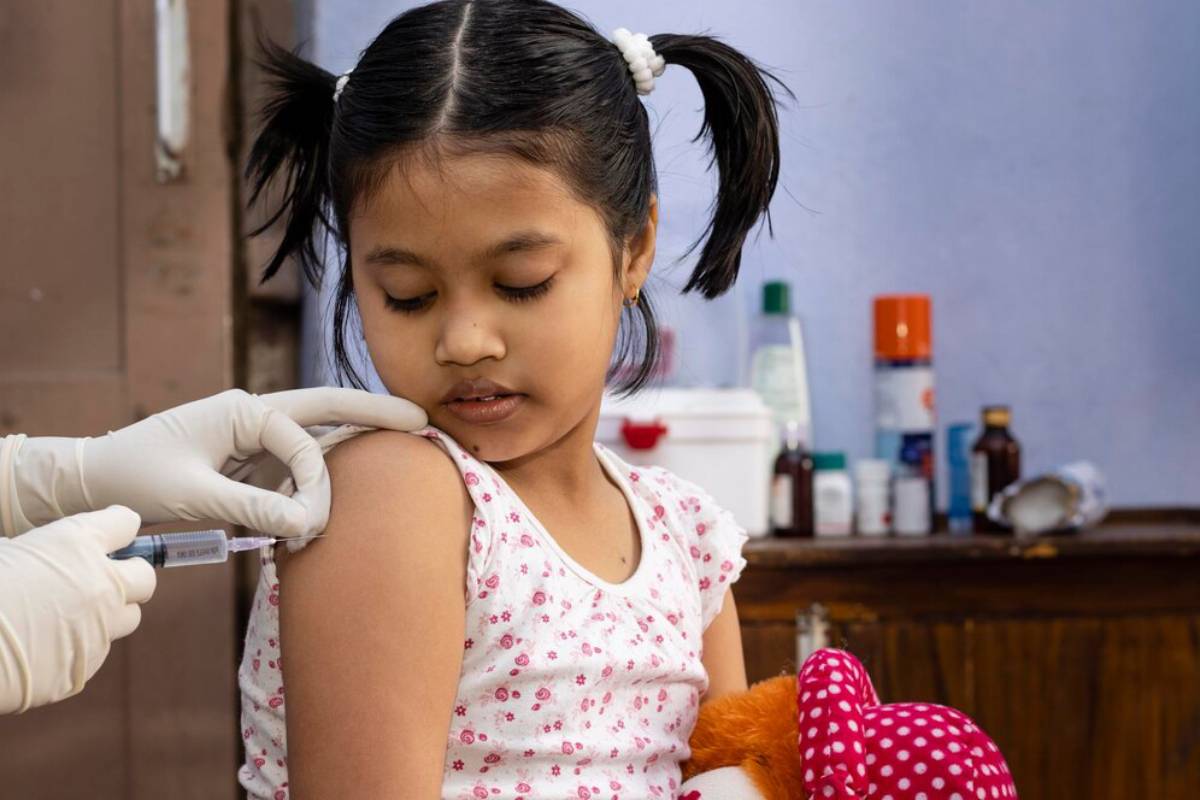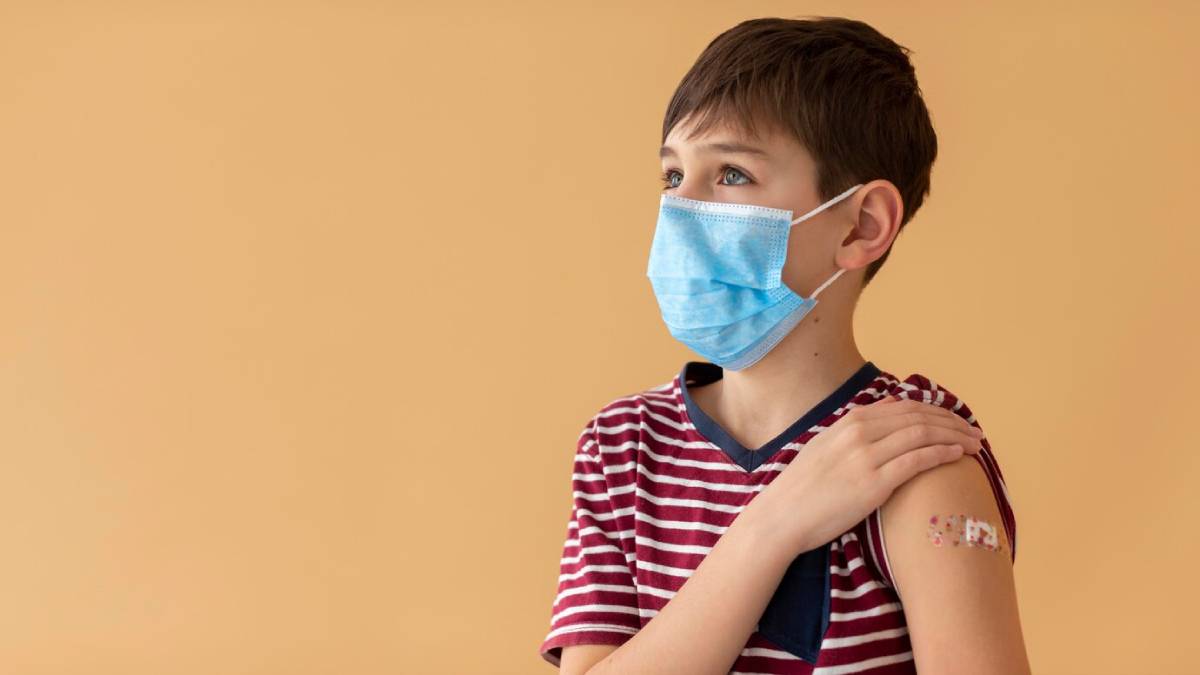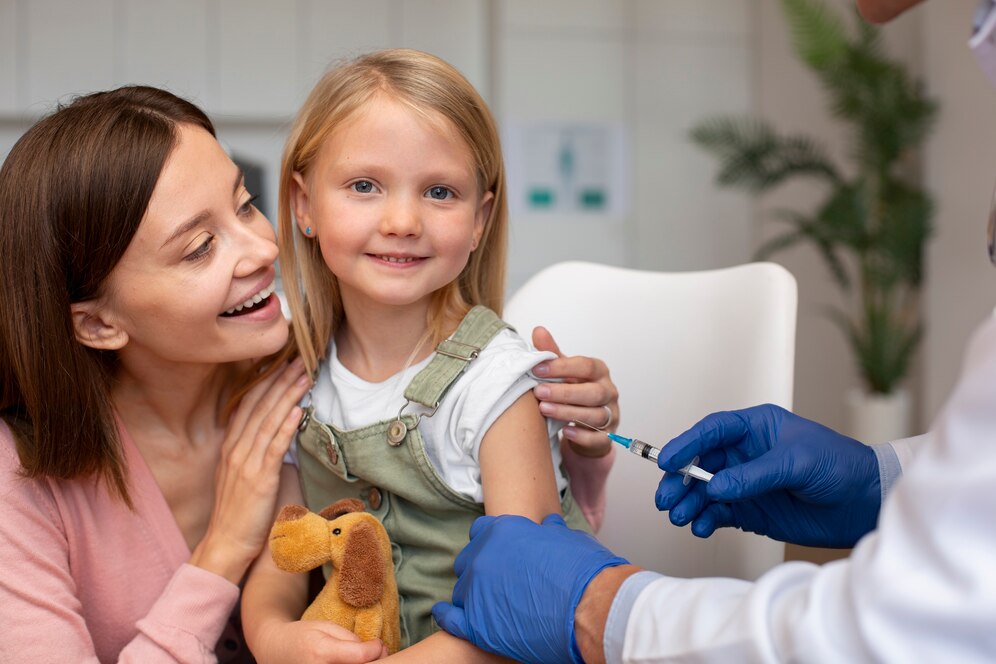
Importance of Vaccinations in Early Childhood
Vaccines are perhaps the strongest weapons in keeping children from getting severe and life-threatening diseases. As a parent, knowing about child vaccines and their significance enables you to make informed decisions protecting your child’s and your community’s health. Early childhood is most vulnerable, and therefore it is essential to follow a recommended infant vaccine schedule that offers sufficient protection against measles, whooping cough, polio, and other diseases.
This blog will discuss the numerous benefits of vaccination, ranging from disease prevention to life-long immunity, and dispel concerns regarding safety and side effects that parents will have. We will also walk you through what vaccination visits are like and how to monitor your child’s immunization record. It begins with a solid foundation for health for a lifetime and vaccines are an integral part of making that happen.
Key Benefits of Vaccinations in Early Childhood
Vaccinations are crucial for protecting children from many serious diseases. By following the recommended vaccine schedule for babies, parents can shield their kids from illnesses like measles, mumps, rubella, and whooping cough. These diseases were once common but have dropped significantly thanks to widespread immunisation.

One major benefit of vaccinations is herd immunity. When many people are vaccinated, it slows the spread of disease. This protects those who cannot get vaccinated for medical reasons. This communal safety is especially important for infants too young for certain vaccines and for people with weak immune systems.
Childhood immunisations also help prevent long-term health issues from infectious diseases. For example, the MMR vaccine protects against measles, mumps, and rubella. It can prevent serious complications like encephalitis and pneumonia. Vaccinating children early lowers the risk of these severe health problems and helps create a healthier future generation.

Why It Matters: The Real-Life Impact of Vaccinations
The importance of vaccinations in early childhood goes beyond individual health; it impacts public health and society. In the UK, vaccines have led to a major drop in disease outbreaks, saving many lives and cutting healthcare costs. For instance, the Hib vaccine introduced in the 1990s caused a 99% drop in invasive Haemophilus influenzae type b disease cases.
Vaccines also help eliminate diseases. The global eradication of smallpox in 1980 shows the power of vaccines. Efforts are ongoing to eradicate polio, with great progress made recently. By continuing to vaccinate children, we move closer to a world free of these harmful diseases.
Data shows the economic benefits of vaccinations. A study in Health Affairs found that every £1 spent on childhood immunisations saves £10 in healthcare costs. This highlights the value of investing in vaccination programs for a healthier and more prosperous society.
Additional Tips & Common Mistakes to Avoid
While the benefits of vaccinations are clear, misconceptions and mistakes can hinder their effectiveness. One common myth is that vaccines are unnecessary because some diseases are rare. However, this rarity comes from successful vaccination programs. Stopping vaccinations could bring these diseases back, posing a major health risk.
Another mistake is not sticking to the recommended vaccine schedule for babies. The schedule is designed to provide immunity when it’s most effective. Delaying or skipping vaccines can leave children open to infections during important growth stages.
Parents and caregivers should talk to healthcare professionals about any concerns or questions they have about vaccinations. Staying informed and following the recommended schedule is key for protecting your child’s health and community health.
Advanced Insights
Experts suggest several strategies to enhance the effectiveness of childhood immunisations. First, keep an up-to-date vaccination record. This helps healthcare providers track which vaccines have been given and spot any that are due.
Parents should also know about potential side effects, which are usually mild and brief. Common side effects can include a slight fever or soreness at the injection site. Being aware of these can help ease worries and reinforce vaccine safety.
It’s also crucial to have open talks with healthcare providers. Discussing any worries or questions about vaccines can help with informed choices and understanding the vaccination process. Healthcare professionals can provide reliable information tailored to your child’s needs.
Understanding of Vaccinations in Early Childhood
In summary, the importance of vaccinations in early childhood is immense. Childhood immunisations protect against many diseases and improve overall societal health. By following the recommended vaccine schedule and understanding the long-term benefits, parents and caregivers can make smart choices for their children’s health.
As we fight misinformation and promote vaccine value, we must stay alert and proactive to protect the next generation. Encourage open discussions, stay informed, and prioritize your child’s health through timely vaccinations. Together, we can build a safer, healthier world for everyone.